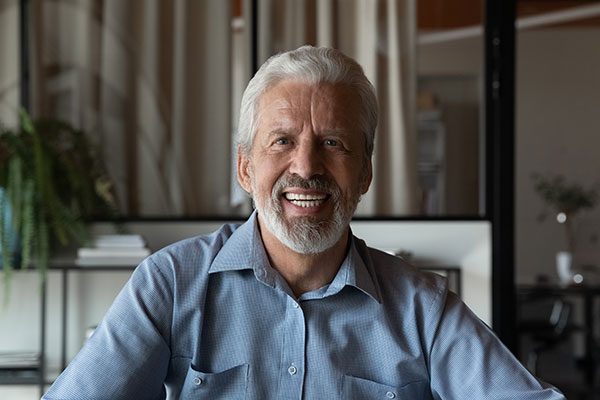Ray,* 66, who has worked for more than 40 years as a social worker/counselor, first started in this field in the midwest in his early 20s. He currently lives in Maine, working in the mental health field with adults. He took a social work job one summer after working in a factory with employees who had developmental disabilities. After hearing their stories about what living in an institution was like, he wondered how he could help people in their situation.
What has your career path looked like?
After that summer job in the factory, where I realized how many of these former residents had little support, I took a few college courses in social work but ended up getting a degree in sociology. In my first job after college, I worked as an employment job coach for youth, adults, and seniors needing training and/or work experience. My role was to search out possible job sites in the community. I found employers to help these folks get into or back into the workforce. I worked with many people who were living in poverty, were having trouble learning basic life skills, and/or needed help learning to read and write.
After working with youth and family services and with troubled teenagers, I then worked in foster care and helped the teens move to independent living. During that time, I was on call 24/7.
The more you’re in social work, the more you start to see different opportunities that might be a better fit–that’s really the key to preventing burnout.
What do you consider success in your job?
I was able to use the values I had learned in some of the social work classes I had taken in college. I learned the principles of service, dignity, and self-worth of the people being served. It’s important to put self-interest aside in this type of work as well as recognize the strengths people have and build on them, as well as to celebrate their successes and support them with the trauma/difficulties that they have experienced.
I had two instructors who were seasoned professionals and took their roles as teachers of social work seriously. I learned that there are certain codes of ethics and standards that guide the work. Both instructors’ desire, knowledge, and genuine joy inspired me and helped me on my journey. In fact, before this first job, I had decided to enroll in a couple of graduate school courses in social work. It was very interesting that many of the people in my classes ranged in age from 20 to 50 and had various other job experiences as teachers and office managers. So, the journey can start for anybody at any time.
How would you describe the impact of your work as a direct care worker?
It’s important to encourage every person you work with and tell them they can accomplish things – and they will. The strongest skill you can have is to just listen – let them know, even in the smallest way, you’re reflecting on the issues and concerns they have back to them.
What advice would you give people who want to become a social worker?
Find out what those people do and ask questions to see if it’s a job you want to do. The thing about human services is you have a lot of different places you can work in: a hospital, an institution such as a correctional facility, a nursing home, outpatient work, and with people with substance use.
What do you wish people outside the industry knew about your daily challenges?
Well, one thing we don’t do is blow our horns enough. We’re here to serve, but we do so in a manner that is quiet and respectful. Having the right mentor in this industry is important—having people ask us, “What do you need help with? What are you struggling with?”
What do you want them to know about the rewards of being a social worker?
What has motivated me is knowing that what I may say or do can make a difference in someone’s life. To see the kids I’ve worked with over the years thrive–that’s what has really kept me going.
At times, I would look at the local newspaper’s announcements of a school graduation or an honor roll list and see the name of a young person who I served–and I would smile and think, this kid has made it!
What are your suggestions for attracting more direct care workers to the field in Maine?
We need to have more information out there on what we do. I wish social workers had a motto like businesses do, something like: “We’re good listeners!” If you go into this field, you’re going to be part of a proud, dedicated team that helps people through crises.
*Name changed for privacy




